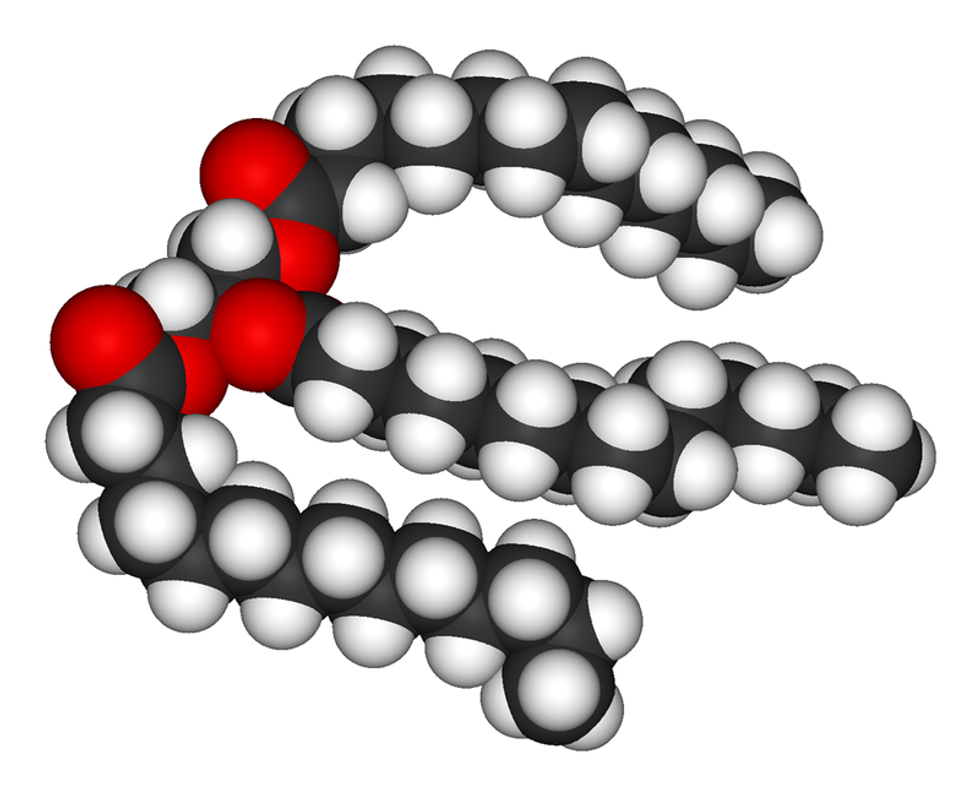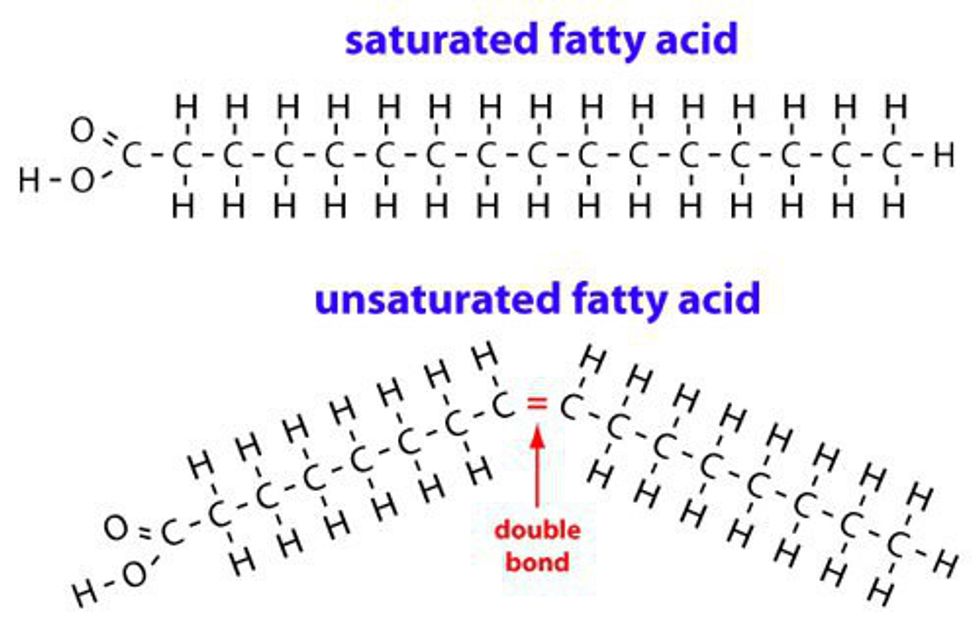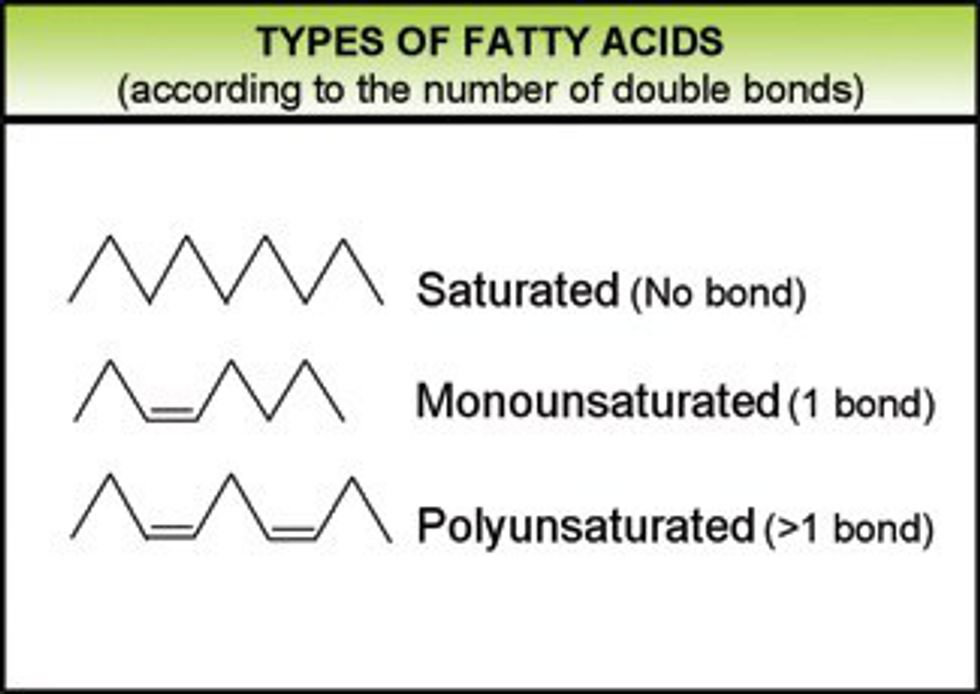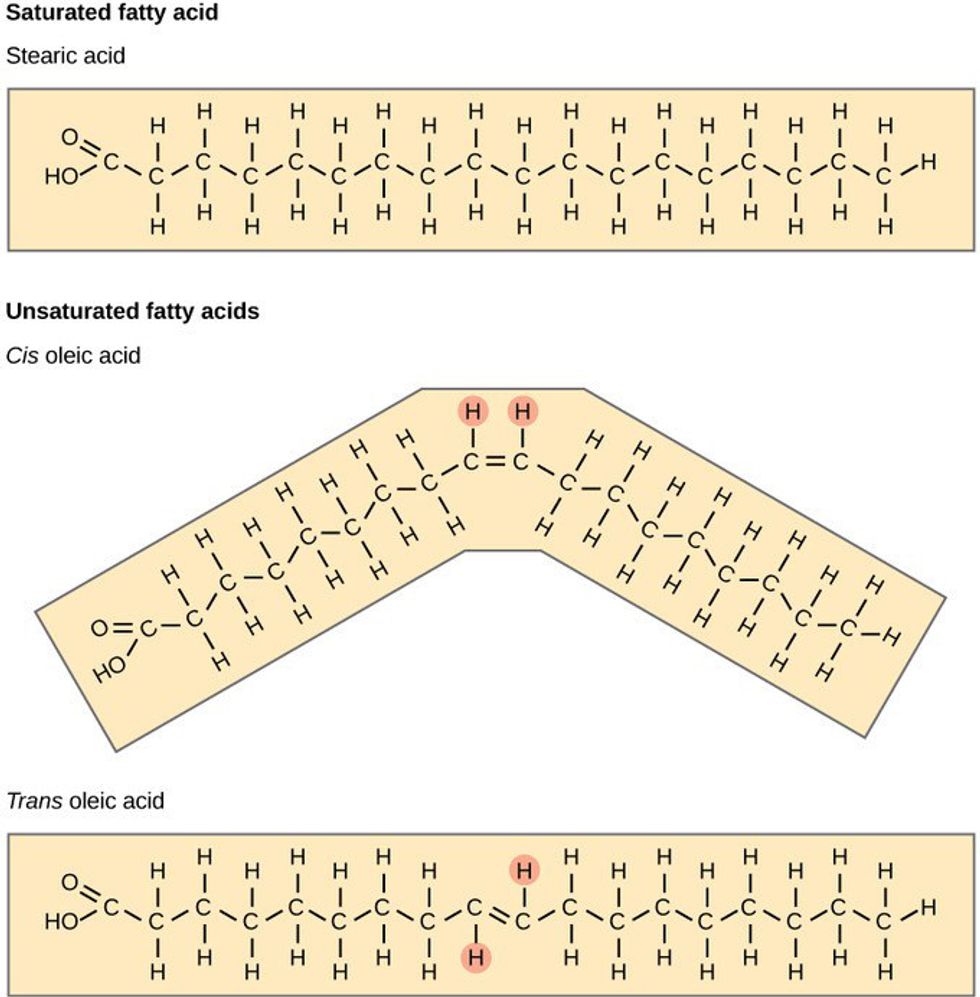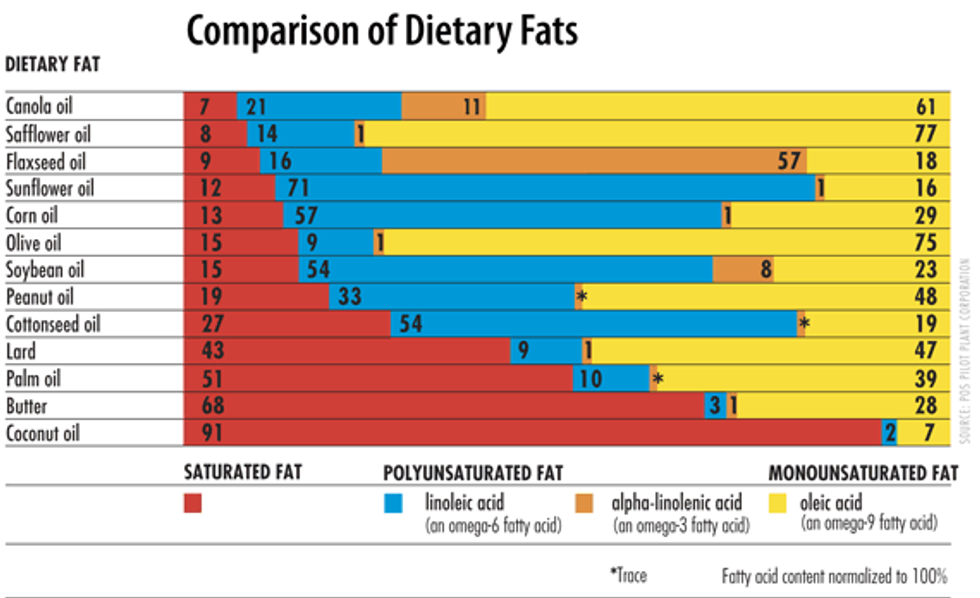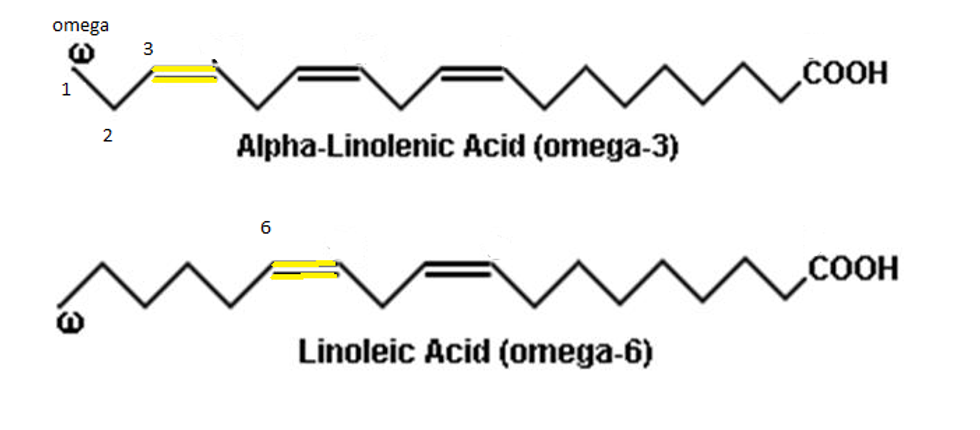People want to know whether they should or should not eat fat, in order to be healthy, but it's difficult to give a straightforward response when the answer is heavy. There are many types of fats, many with obscure names referring to their chemical structure or mode of production (e.g. saturated, unsaturated, polyunsaturated, omega 3 and 6, trans, hydrogenated), that it's easy to get lost in the lingo.
So, first things first, let's address what are fats?
Fats, also known as triglycerides or lipids, are organic molecules primarily composed of carbon and hydrogen atoms (with just a few oxygen atoms). The following image depicts a common triglyceride structure with a glycerol backbone and three fatty acid chains branching from it.
Why are there so many fats and what causes them to be different?
Fats generally fit into two major categories, saturated or unsaturated.
Saturated fats have no double bonds between the carbons of its fatty acid chains, while unsaturated fats have one or more double bonds.
Furthermore, unsaturated fats with only one double bond are classified as monounsaturated fats and those with more than one double bond are classified as polyunsaturated fats.
Saturated fats are generally solid at room temperature because their constituent molecules are able to stack into lattices because of their somewhat linear fatty acid chain structures. Unsaturated fats are generally liquid at room temperature because their fatty acid chains have kinks in them caused by double bonds and these kinks keep them from stacking. However, unsaturated acids that have a "trans" isomeric structure can form stacks because their fatty acids don't form kinks but instead mimic the structure of saturated fats.
Which fat is healthier: saturated or unsaturated fat?
Saturated fats are generally less healthy than unsaturated fats because they can pack together more easily and form plaques in our arteries and blood stream, causing a condition known as atherosclerosis (hardening of the arteries due to build up of plaque) or a stroke due to blood clots. For similar reasons, trans fat (also known as hydrogenated fat), like margarine, can be just as bad, if not worse, than saturated fats because they stack even better than saturated fats and are resilient to being broken down. Trans fats are actually in the process of being completely banned in America.
Generally speaking, saturated fats are synthesized more in animals and unsaturated fats are synthesized more in plants. However, naturally occurring fats are not solely saturated or unsaturated but rather are a mixture of the two. Also, there are some oils that slip around the rules; for example, coconut oil and palm-kernel oil have significantly high levels of saturated fat content.
Do we need fat?
Yes, we definitely need fat because fat is necessary for cell growth and structure; it helps our bodies absorb nutrition and produce important hormones; plus it keeps us warm and protects our organs. Our bodies naturally synthesize fat but they can't produce two essential fatty acids which are omega 3 and omega 6. Therefore, we must incorporate omega 3 and 6 into our diets. Omega 3 and omega 6 are both polyunsaturated fats and only differ in their double bonds. Omega is the last letter of the Greek alphabet, therefore it represents the end of the hydrocarbon chain when referring to fatty acids. If the double bond is located just before the third carbon at the end of the fatty acid chain it's called omega 3 and if it's six carbons away from the end it's called omega 6. As far as which one is "healthier," omega 3 or 6? That's a contentious issue, but, since they're essential, it might be wise to have a little of both.
Disclaimer: The information contained herein is not intended to be a substitute for professional medical advice, diagnosis or treatment in any manner. Always seek the advice of your physician or other qualified health provider with any questions you may have regarding any medical condition.




